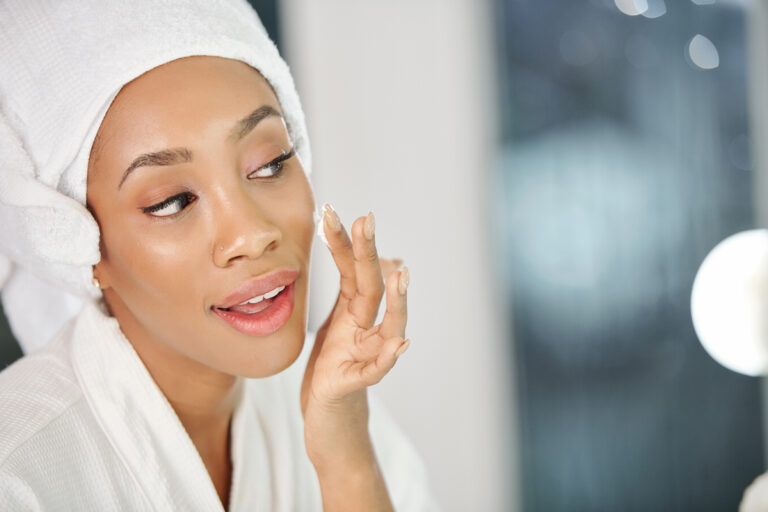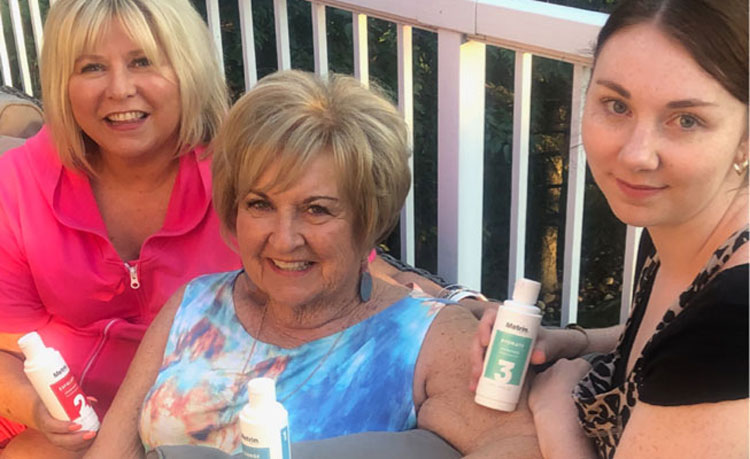The Importance of Skin and Self-Care
A controversial article decrying the skin care industry as a whole was recently published in The Outline and made waves for its hardline stance against everything to do with skin care products. Both it and many of the resulting response pieces that refuted its problematic claims have gone viral in beauty and skin care circles.
The provocatively titled post, “The Skin Care Con”, suggests the very dubious premise that the entire skin care industry and the whole of its products are essentially, not only entirely unnecessary, but a total scam. Not certain or some products or elements, but everything. Needless to say, their argument doesn’t quite hold up to any sort of scientific or fact-based editorial standards.
Before we delve into the the arguments and discussions around the value of skin care, we must advocate how important it is to care for the skin and make sure its cared for properly for any human being’s continued health and well-being.
Making Claims
Writer Krithika Varagur claims “real skin” should reflect real, flawed women. She somehow equates deep complex issues of female identity inside and out with only the outer superficial appearance of the skin. Skin care is so much more than that and no one should suggest an entire gender is only reflected by its looks.
Many of her points ignore and negate any idea of self-improvement or healthy practices in general. We exercise, eat better, and do all kinds of things to improve our health. Skin care is a part of this. She then lists some of the skin’s natural functions yet never explores how they can be improved or maintained to make sure the skin continues to function well through skin care.
Some of the writing is dubious and misleading at best. “Perfect skin is unattainable because it doesn’t exist.” – Perfection is by definition unattainable, however, the idea that self-improvement is unnecessary because of this is specious logic. The notion that bad or problem skin cannot (or shouldn’t) be overcome is not only untrue but carelessly dismissive.
The claims also ignore the communities around beauty and skin care that have organically risen to share common advice, routines, and information outside of retailers. Never mind, there’s no mention of those who suffer from chronic or medical conditions that require attention.
Response and Defense
Allure Magazine‘s direct response and defense of skin care was a thoughtful takedown analyzing the original piece as an unfair, one-sided rant. Author Sarah Kinonen wisely points out the fallacy of decrying an entire industry for the dubious actions of its segments.
It’s true skin care can be unreliable and problematic. Any successful industry has its imitators and troublemakers. We often discuss the problem with new, hot trends or the use of marketing a magical ingredients, but this has no bearing on an entire industry.
Kinonen goes on to explain often “consumers are unfortunately not well-informed” about the nuances and details of dermatology and how the right combination and order of daily skin care products is essential for any visible changes. It’s not a problem with the idea or concept of skin care, but how some sellers package or deliver their products that consumers might find frustrating. This is the core of what should be actually addressed.

What Women Want
Slate went on to talk about how any dismissal of skin care is condescending to women in general. The Outline piece simply is not based in fact or science. Instead, it tells cherry-picked horror stories and makes wild claims about anything and everything. If you’re going to demonize an entire segment, be sure to breakdown its entirety and not just it’s most glaring elements.
The Huffington Post also chimed in defending the positive benefits of proper skin care while analyzing bad trends within the industry. Writer Sady Doyle delves into the intrinsic sense of female desire wrapped in popular skin care use. Skin care as a concept is so much more complex with a depth of understanding needed beyond any basic products.
Ritual and Coping
The New Yorker‘s enlightening essay (that pre-dates the topic) about skin care as a coping device was another interesting exploration of its psychological benefits beyond beauty. 2017 was a rough year for many, especially those who advocate for inclusivity and diversity. The article discusses skin care more as a concept and ritual of self-care.
When my skin feels good, I feel happy.
Writer Jia Tolentino advocates beauty products of any price range beyond the ideals of conventional beauty and as a feminist discourse. Instead of youthfulness, skin care should reflect your best self, who you are, and how you see yourself. It goes on to explore the differences between eastern and western skin care products and the virtue of sharing diverse experiences.
There’s a hopefulness to skin care that attempts to delay or “deny the inevitability of the future”. Some consider it a subconscious act of resistance. In fact, 2017 was considered by some as a banner year for skin care as the industry as well as beauty in general grew partially influenced by political factors.
What Skin Care Really Means
What skin care means to you is personal. We feel it’s important to share its benefits and how it works for you. It may not be some big political act or even particularly relaxing, but how it improves your life and allows anyone to be their best (healthy) self is key.
It’s also important to remember the value and undeniably female component to skin care. Women drive most of skin care consumption and there’s an organic culture that’s grown over the years around it. It has the power to bond and empower individuals just as less than reputable companies often try to take advantage and use deceptive marketing to trick or manipulate the emotions of beauty care.
Any further meaning derived from skin care can be deeply individual or simply transactional. Its benefits and core tenants should always be used to improve yourself and your health both inside and out. It’s also about basic cleanliness and keeping your skin, the body’s largest organ, working properly. Its value depends on each individual.







